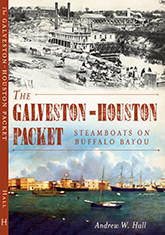Against the “What-If” Approach to History
 Civil War historian Glenn LaFantasie has a column out today at Salon, in which he poses a typical “what-if” question: what if Robert E. Lee hadn’t publicly and persistently repudiated the idea of the Confederacy engaging in long-running guerrilla warfare, an insurrection, in the months and years after Appomattox? LaFantasie then goes on to spin a wild tale of a resurgent Confederacy, which finally wins recognition by the United States in 1881. After decades of bloody slave revolts, the Confederacy amends its constitution to abolish the institution of slavery in 1938. Confederate ships lie at anchor alongside U.S. vessels at Pearl Harbor in 1941, and the two nations eventually reunite in the late 1940s. LaFantasie’s fantasy finally ends up with the re-established United States being today, more-or-less where where we actually are.
Civil War historian Glenn LaFantasie has a column out today at Salon, in which he poses a typical “what-if” question: what if Robert E. Lee hadn’t publicly and persistently repudiated the idea of the Confederacy engaging in long-running guerrilla warfare, an insurrection, in the months and years after Appomattox? LaFantasie then goes on to spin a wild tale of a resurgent Confederacy, which finally wins recognition by the United States in 1881. After decades of bloody slave revolts, the Confederacy amends its constitution to abolish the institution of slavery in 1938. Confederate ships lie at anchor alongside U.S. vessels at Pearl Harbor in 1941, and the two nations eventually reunite in the late 1940s. LaFantasie’s fantasy finally ends up with the re-established United States being today, more-or-less where where we actually are.
I suspect a lot of folks stopped reading about halfway through (as I did at first), put off by LaFantasie’s apparent effort to out-do Harry Turtledove. But that’s a mistake, because if you give up halfway through, you miss his real point: “what-ifs” are fun as a party game, but have little real bearing on the study of history:
But wait, you cry, that’s not fair! You’ve got the nation following the same track after 1952 that it actually took in its real history!
I suppose you have every right to be upset, to feel like I’ve rigged the game, which, of course, I have. The fact is: You can’t change history, no matter how many times history buffs play counterfactual parlor games or politicians try to alter it by dictating what should be in textbooks or by wishing they could take back something they’ve said that’s now plastered all over the Internet.
In my counterfactual history of the Civil War and its aftermath, I’ve manipulated facts and events so that everything would lead us precisely and purposely to where we already are. Maybe that’s because for all my flights of fancy, I can’t stop being a historian. In my less-than-fertile imagination, the United States ends up precisely where it’s supposed to be, with the American people standing exactly where we are now, for better or for worse. And having reached this place, we are as confused as we’ve ever been about what we’re supposed to do next.
American history has followed roads that are not necessarily inevitable or predictable. But our path as a country has been, I believe, both dogged and implacable. History is not fungible. The facts of history cannot be changed. Nor should we want to change them. We have much to learn from the past if we are to understand properly how the nation has wound up where it is now. In the end, the American people in 2010 have reached a crossroads of their own making, forged in the fires of their past. We have arrived at the place we are supposed to be. Now it behooves us to mind very carefully where we go from here.
Well played, sir, and well put.






Sounds reasonable but makes little sense to me. If you change the beginning, how could the end not be changed as well?
That’s LaFantasie’s point, though, once you start playing “what if,” you can always massage the scenario into whatever outcome you want. His example is supposed to be silly. I do think asking “what if” can be useful in a limited way, but the farther one extends them from their original point of departure, the more specious they become.
And some “what ifs” have been repeated so often, for so long, that folks who repeat them no longer realize they’re speculation — they accept them as fact. I’m thinking specially of the argument that slavery as an institution would have died out on its own in a relatively short period of time — 20 years, 30 years, 50 years — without the bloodshed of the Civil War. That idea was first postulated, I think, by the “Southern School” of historians in the 1920s, long after the war. I don’t remember reading anyone making that argument in the 1850s or 1860s, and the CS constitution was hard-wired to protect the institution, but lots of folks accept the assertion nonetheless without challenge today, not even pausing to think that it’s actually a “what-if” — although one that’s been around a looooong time.
There is one important use for contrafactuals. It’s important to recognize that things didn’t have to turn out the way they did. I don’t really care about how the south winning the Civil War would have effected the 1904 election, nor do I want to speculate about the effects of Afrikaners running AK47s through time machines. It is useful to ask these questions some times — what if Sherman had fucked up in front of Atlanta in 1864? How much would it have taken for McClellan to have won that election, and what might have happened if it did?
Most of the time, alternative history stories, like Harry Turtledove’s, are about wish fulfillment. If the South had won, everything would have been great and by now we’d have arrived at utopia.
The more adult use of counterfactuals is to remind ourselves that our actions have consequences, that the world can get better and/or it can get worse — we can’t count on the logic of history, the will of great men, the spirit of progress, or anything else like that to shape our fates. And we can’t count on our own actions, either, since chance has a large role to play: “For want of a nail the shoe was lost …”
There was a bit in Harper’s, oh, twenty years ago or so, which was a series of what-ifs. One of them had to do with Stalin—what if Stalin hadn’t risen to the top or what if he hadn’t forced collectivization or some such—and how so many people wouldn’t have been killed in his regime. But then it was noted that the USSR might have been such a disorganized mess that it wouldn’t have been able to defend itself against Hitler’s army.
Pretty much doused my enthusiasm for ‘whoo-boy’ alt-histories.